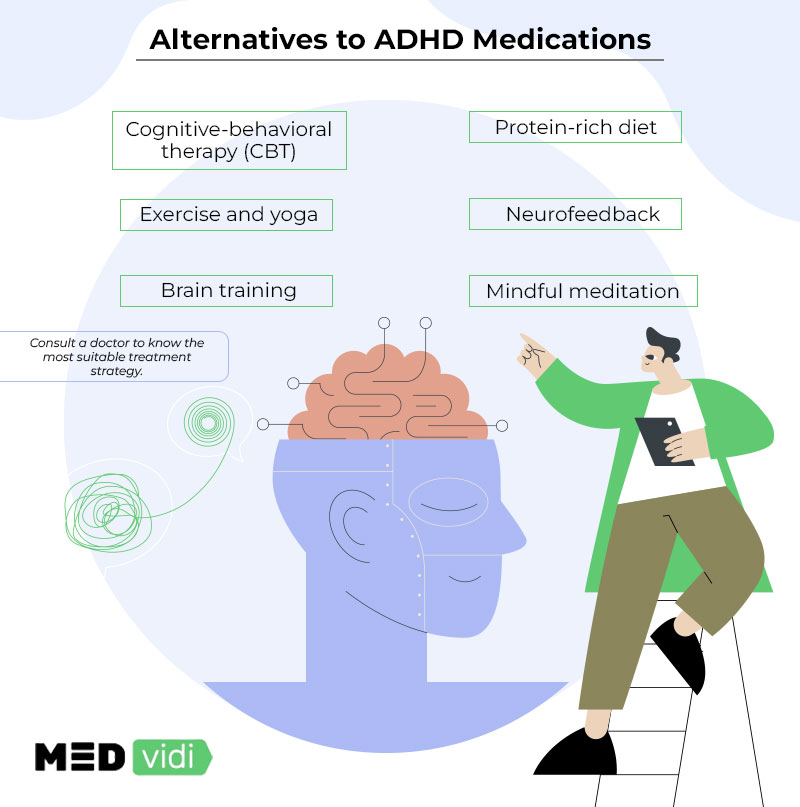Your Guide to Discovering the Right ADHD Therapy for Long Lasting Results
Browsing the complexities of ADHD therapy requires a nuanced understanding of both the condition and the myriad options readily available for reliable administration. It is vital to recognize that what works for one individual may not always generate the same results for another.
Understanding ADHD and Its Impact

In adults, ADHD can bring about difficulties in work environment settings, impacting performance, time management, and social relationships. Commonly, undiagnosed or poorly managed ADHD can contribute to co-occurring psychological health and wellness concerns, such as anxiousness and clinical depression, additional making complex a person's general wellness.
The social perception of ADHD can differ, resulting in stigma and misconception, which may impede people from looking for assistance. As awareness grows, it is necessary to promote a setting that promotes understanding and support for those impacted by ADHD, emphasizing the need for precise medical diagnosis and tailored methods to minimize its impact on everyday life.
Overview of Therapy Alternatives
A comprehensive approach to treating ADHD encompasses a range of alternatives customized to the individual's distinct demands. These alternatives can extensively be categorized into behavior treatments, psychoeducation, and way of living alterations, along with pharmacological treatments that may be discovered later.
Behavioral treatments, such as cognitive-behavioral treatment (CBT), focus on customizing particular habits and establishing coping methods to manage signs effectively. Psychoeducation plays an important role in encouraging both individuals and their households by giving info about ADHD, its obstacles, and efficient techniques for assistance.
Lifestyle alterations can dramatically influence ADHD management. Routine exercise, a well balanced diet regimen, and appropriate sleep add to total well-being and symptom control. Mindfulness techniques and relaxation strategies can likewise enhance emphasis and reduce impulsivity.
Support system and family members therapy can foster a sense of area and understanding, aiding individuals really feel less separated in their experiences. Each therapy choice need to be thought about in conjunction with the individual's choices and circumstances, guaranteeing a holistic technique that promotes long-term success. Ultimately, the goal is to develop an individualized therapy strategy that resolves the details challenges linked with ADHD while enhancing general top quality of life.
Medicine: Pros and Disadvantages
Medicine plays an essential duty in the therapy of ADHD, with many alternatives offered that can substantially minimize signs and symptoms vagus nerve stimulation depression for several individuals. Energizers, such as methylphenidate and amphetamines, are generally suggested and have shown effectiveness in boosting focus, lowering impulsivity, and improving overall habits. These drugs work by enhancing dopamine and norepinephrine degrees in the brain, which are often dysregulated in those with ADHD.
Some people might experience side effects, consisting of sleep problems, decreased hunger, or raised anxiety. Additionally, not all individuals respond to stimulant medications, leading some to check out non-stimulant alternatives, which may have a delayed beginning of action or different side results.
It is crucial for individuals and their households to consider these advantages and disadvantages carefully. Stabilizing the benefits of signs and symptom administration against possible side results is important for achieving ideal therapy end results. Partnership with medical care providers can assist in informed decisions, ensuring that drug becomes part of a comprehensive ADHD monitoring strategy.
Behavioral Treatment Methods

One generally used method is Cognitive Behavior Treatment (CBT), which aids individuals identify and change common antidepressants negative thought patterns that add to ADHD-related obstacles. Therapist for ADHD. With CBT, customers learn to establish practical objectives, handle time effectively, and establish organizational systems
An additional reliable strategy is Parent Monitoring Training (PMT), which informs moms and dads on exactly how to enhance favorable habits and decrease adverse ones via consistent discipline and interaction my company approaches. This technique promotes a helpful home setting that urges behavior enhancements.
Social skills training is also important, assisting people with ADHD navigate social interactions much more efficiently. Role-playing and modeling suitable behaviors can enhance social proficiency and minimize stress and anxiety in social scenarios.
Way Of Life Changes for Better Monitoring
Exactly how can lifestyle modifications substantially boost the management of ADHD signs and symptoms? Carrying out strategic way of living alterations can result in substantial enhancements in emphasis, company, and emotional policy for individuals with ADHD.
Firstly, developing an organized day-to-day routine helps in creating predictability, which can minimize feelings of overwhelm. Constant routines for dishes, study, and sleep can enhance daily performance.
Incorporating normal exercise is also crucial, as exercise has actually been shown to increase dopamine degrees, boosting attention and motivation (Therapist for ADHD). Intending for a minimum of 30 minutes of moderate exercise most days can be beneficial
Nutrition plays an essential duty. A balanced diet rich in omega-3 fatty acids, entire grains, and protein can support cognitive function. Limiting refined sugars and high levels of caffeine might lower signs and symptoms, as these can lead to energy collisions and impatience.
Conclusion
Finally, locating the best ADHD therapy requires a complex approach that considers specific needs and preferences. A mix of drug, behavior modification, and way of living modifications can dramatically improve signs and symptom administration and total wellness. Engaging in psychoeducation and establishing structured regimens better supports effective treatment strategies. Collaboration with health care professionals and open communication with assistance networks are crucial components in browsing the complexities of ADHD management, eventually bring about lasting outcomes and improved lifestyle.